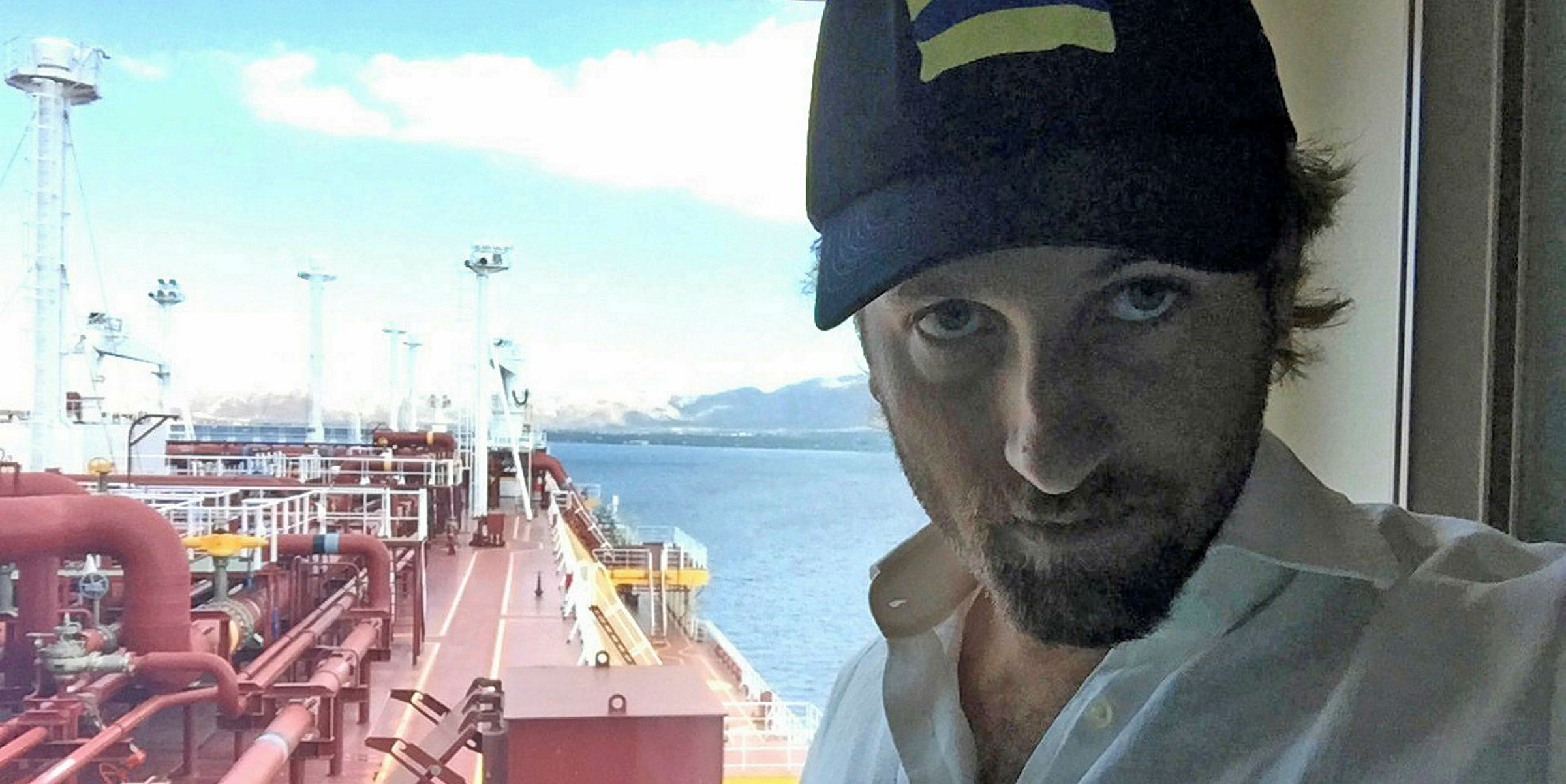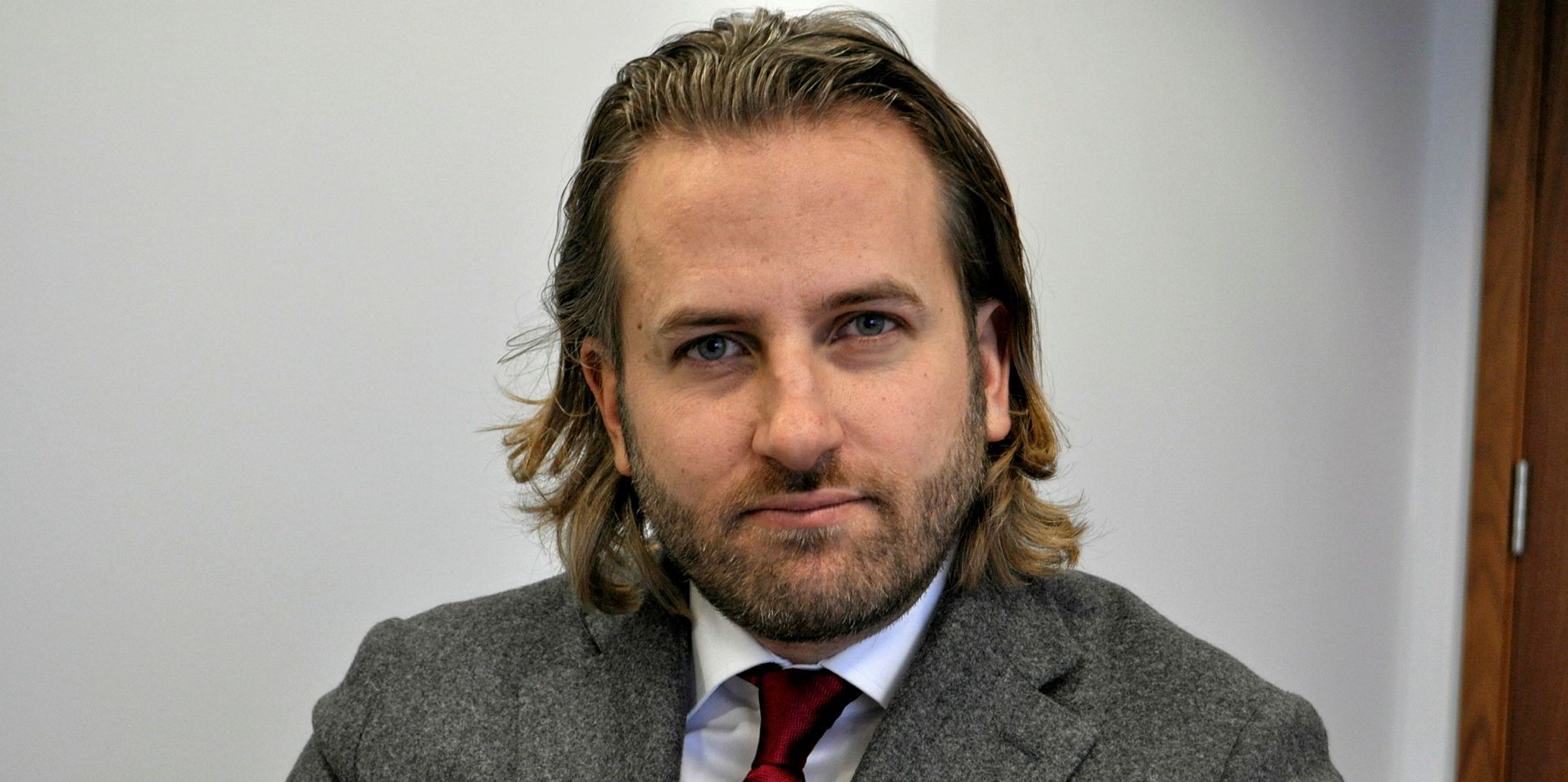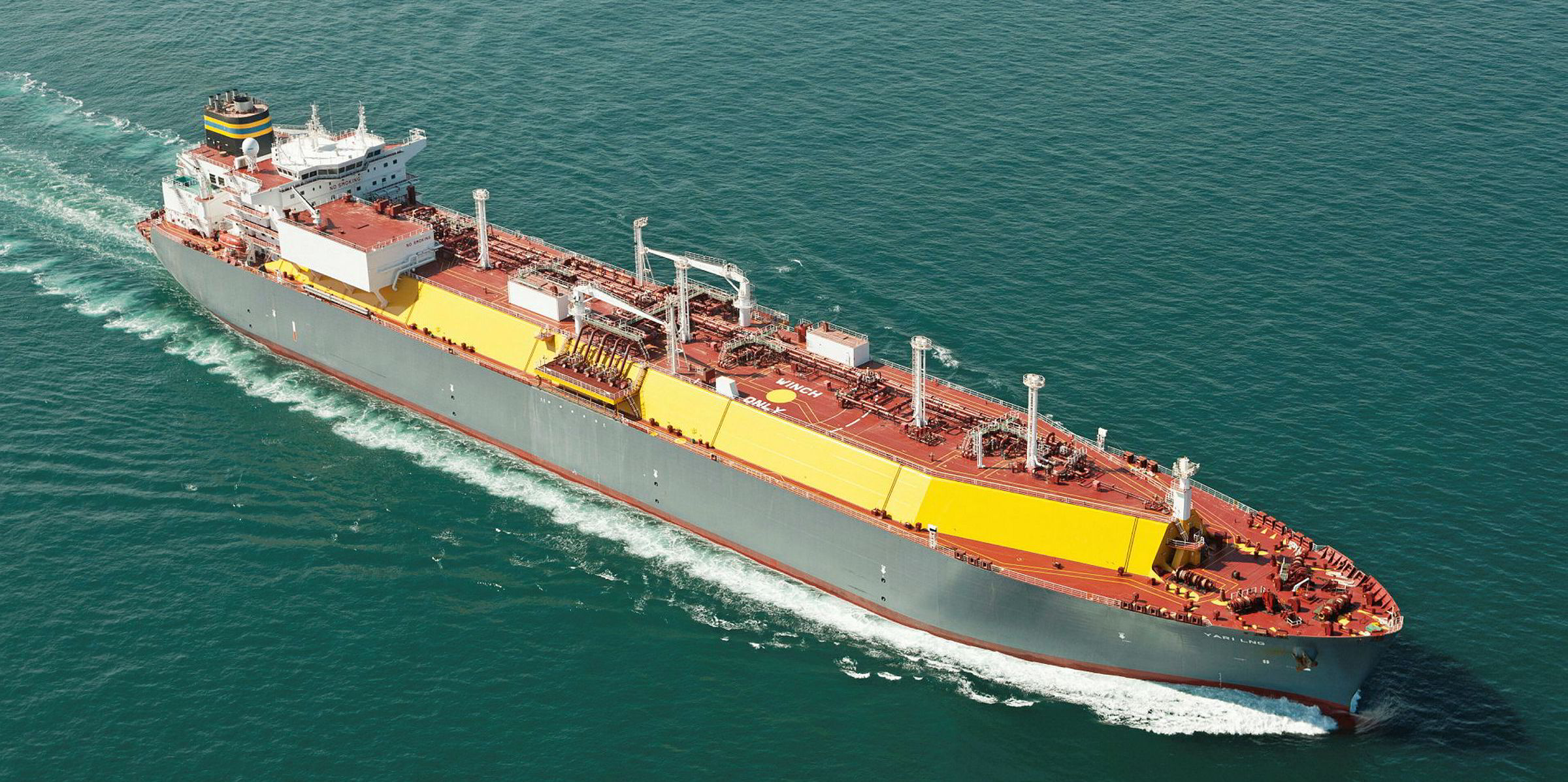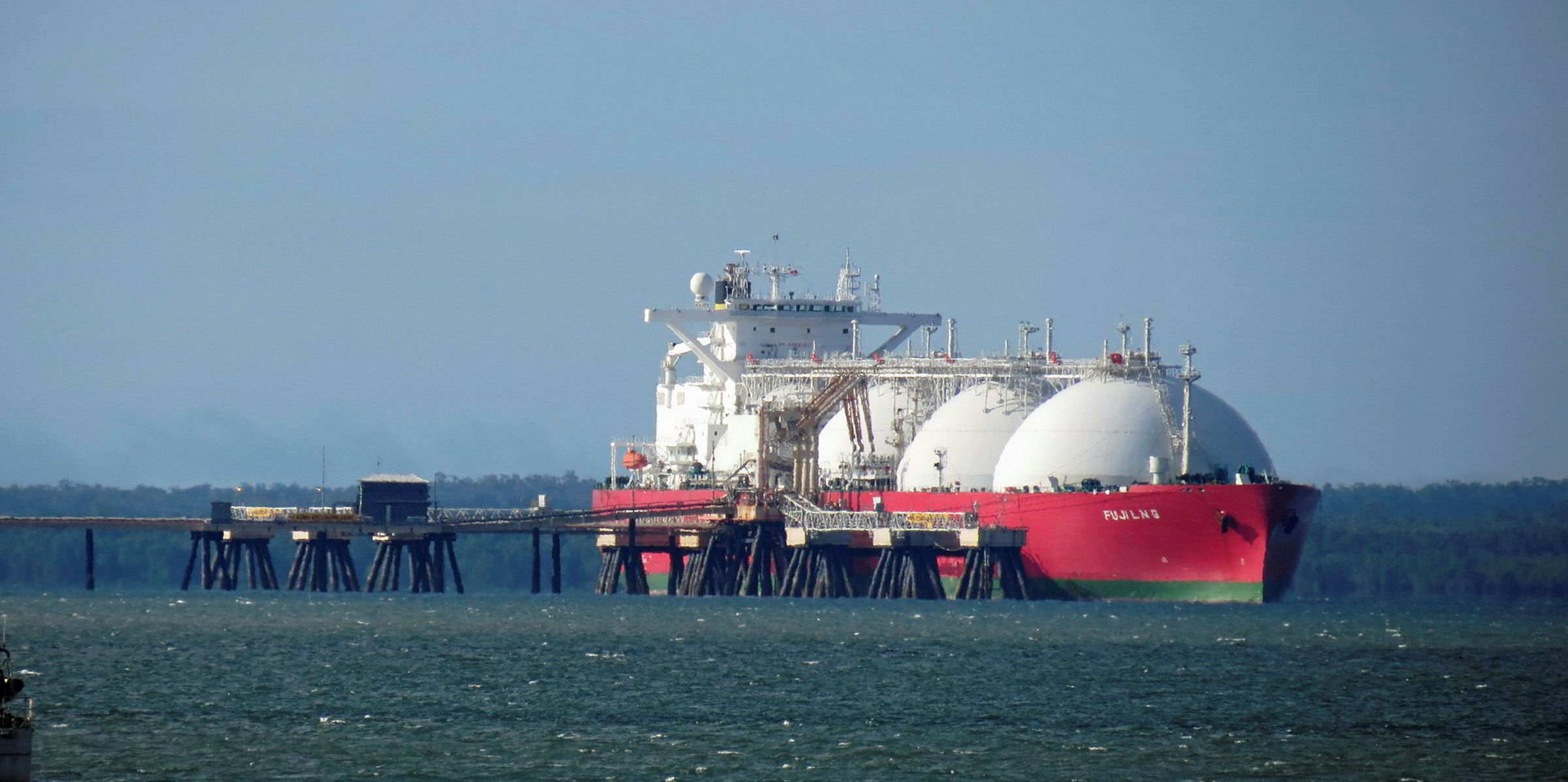Christos Economou is a self-confessed hybrid. The founder and chief executive of Greek LNG company TMS Cardiff Gas loves both the technical and the commercial aspects of shipping.
“I think anyone who does one without the other is missing half the equation,” he says.
The eldest son of well-known industry face George Economou launched his LNG business in 2011, buying a lone secondhand vessel. He then expanded with four newbuildings, all of which delivered into a poor spot market in 2014.
But last year his company took the market by storm, contracting 11 LNG newbuildings in 12 months — more than any other single entity — and inking term charter deals on nine of them.
Speaking to TW+, Christos Economou has given one of the first insights into his burgeoning LNG shipping business.
The sector appeals to both aspects of his business acumen.
Of course the engineering part is of interest, he says, explaining that the Greek education system is geared to a more mathematical way of thinking.
“I don’t think you can build an operational business that services customers around the globe today if you don’t have the proximity to the actual ships and what you are doing. You cannot be the CEO, you cannot be the founder of a company, if you don’t have that.”
But through his studies and the business transactions he was involved in before joining the family business, he also got a feel for the financial aspects. “In today’s world, one is complementary to the other.”

He also believes in taking a personal interest in his employees: “You have to be close to the people you have. They are forgoing a lot to be on those ships. They want to know that the founder, the CEO, is engaged and knows what is happening.
“We try as a company to do as much as possible to make everyone goal-orientated but at the same time feel that there is a person to speak to rather than a faceless organisation.”
Economou hesitates to benchmark TMS Cardiff — the TMS stands for Technical Management Services, although the boss prefers to think of it as Teamwork Means Safety — against other LNG shipowners. But he is very clear on one thing.
“We do want to be seen as one of the industry leaders in the business,” he emphasises. “We spent a lot of time in building up our operations, as any true Greek owner, and we do feel that our customers are paying attention to and recognising us, which to us is more important than benchmarking across any competition.
“We see the market in LNG growing at 14% over the next couple of years in terms of volume growth.”
He says the existing market is around 400 million tonnes per annum, with a further 76 mtpa due to be added from upcoming final investment decisions (FIDs). “We want to be in a market that keeps growing and focus on that.”
LNG is a clean source of electricity compared with the coal alternative, Economou points out. “The changes in air quality in Beijing and other Asian cities because of the switch from coal to gas definitely make us feel good about what we are doing.
TMS Cardiff Gas controls 16 LNG carriers, 11 of which are on order at two shipyards in South Korea for delivery dates next year and into 2021.
The company has fixed nine of its 174,000-cbm newbuildings on multi-year deals, is closing in on business on a 10th and says it has a backlog in contracted revenue of $2.8bn.
The Greek owner’s four 160,000-cbm tri-fuel diesel- electric ships, which are all 2014-built, are employed on periods of less than one year, while its first buy, the Fuji LNG, is scheduled to come off period hire in 2020.
“Our experience in this sector is that we have been pleasantly surprised by the magnitude of movement in rates during the last quarter and we have seen long-term contract signing from our customers, so that is a positive indication for us to feel more comfortable in the business we are engaging in.
“There are probably few well-capitalised and operationally strong companies, and we hope our customers see us as one of those.
“We are excited to be part of the LNG club and be a player in that. I do believe that we can reliably transport the cargo and make money doing that. These are the most advanced ships in the world today — they go 20 knots, they carry a cargo that is minus 160ºC and it is exciting to have built a business about bringing energy to the cities.
“We want to be a player in the business,” he adds, explaining that the company has ordered more ships than anyone else, opting for two-stroke XDF propulsion systems with reliquefaction technology on its latest batch of 11 newbuildings.
“When we see an opportunity, we go for it. We generally solve the pieces of the puzzle.”
Economou says TMS Cardiff built its business off its first Japanese customers and believes this level of operations is the standard its customers want.
He recounts buying the company’s first LNG carrier, the 147,895-cbm Fuji LNG (built 2004), and fixing it to Sakhalin Energy for four years at a six-figure rate. In contrast, when the first of its newbuildings was delivered in 2014, it waited four months to load in what he describes as a less than expected market.
Economou’s best moment to date? “When the market is just about to pop and nobody sees it.”
The worst came when the company was negotiating a charter for one of its vessels. “We were earning $10,000 per day and our customer was saying $11,000 is really very expensive,” he laughs.

People always told him the market was going to be good, but there were times when he started doubting it.
“To be honest, I always thought 2019 would be the year the market would actually pop,” he reflects. “It popped in ’18. The market moved faster than anyone really predicted.
“We are all very excited that the market is good and there is growth and that there is a bunch of things to do in the space, and we want to play a role in that for our customers.”
The US keeps producing more gas, the price is competitive and as long as there is a fundamental trade deal between the US and China at some point, that should be a big catalyst for growth, Economou says, adding: “We are hopeful that ’19 and ’20 will be strong project FID years.”
He says the growth in the LNG business has been “tremendous”. The tanker market is growing at about 1% per year, whereas LNG is almost in double digits, he adds.
“As the midstream provider, you feel that is a good business to be in. The market is the market and it will play out and show whether we were right in taking the position that we did. As in anything, you are taking a risk.”

For now, he feels TMS Cardiff’s contract coverage is good.
“We like the contracted model. We want to keep some exposure on the spot side, but the super-majority of our business is contracted. We feel that bodes well with our customers and what they want.
“The balance sheet is important here. We want to be seen as the counterparty of choice with regard to operations and counterparty risk.
“The next stage of growth for me personally is definitely focusing on the existing shipping business — what we have built today. However, we have to be always mindful of how fast the actual trade will be growing. That’s what we pay attention to with regards to LNG shipping going forward.”
Economou says most of the customer requirements that the company has seen are for periods of between five and 12 years.
“If the returns are there, we will keep growing the business with the right customers.”
Economou claims he does not have a one-year or a five-year plan for the business.
“With our mentality, two years ago we didn’t even have a six-month plan. Today, however, I can say that we do want to be a part of the energy infrastructure of gas in shipping going forward and see how that plays out in the long term for us. There is no ideal shipping fleet size.
“It’s been a bumpy ride — however, it’s good to see a little bit of the light at this time.”

‘Sometimes I force myself to go on vacation’
Christos Economou says he is fairly hands on at TMS Cardiff Gas. The 36-year-old believes it is necessary in this business. “I take time out when I need time out; otherwise I’m pretty engaged.”
Economou describes himself as “curious, focused and interested in the game”.
Those who know him are impressed with what he has achieved and say he is down to earth, works hard and is well liked.
To unwind and engage his interest elsewhere, Economou enjoys playing all kinds of sport.
“To build any type of business, you have to be very engaged to do that. Having said that, it is in the best interest of everyone in the company, including myself, to be able to take time off when they need it. So sometimes I force myself on vacation.”
In shipping, Economou started off working in the dry bulk sector. Ending up in LNG feels as though he has run a marathon, he says, but adds: “It is definitely where I would have wanted to be if I had known when I started out within the shipping sphere.”
An economics graduate with a higher degree in ocean systems management from Massachusetts Institute of Technology, Economou cut his business teeth as an analyst for M&A specialist Lazard in New York, then joined tanker pool player Heidmar in the US as an associate of the corporate management and a junior freight trader and charterer.
He advised the private side of his family business and father George Economou’s tanker and dry bulk outfit Cardiff Marine Inc on third-party transactions as a consultant before stepping out with his own LNG venture in 2011.
He does talk with his father on work, saying the pair have “an ongoing back and forth” depending on the issue at hand.
While most of his time is devoted to TMS Cardiff, Economou also engages in other activities, more as an investor than an operator.
“I do spend my time, from a business perspective, on investments that I have in technology, the venture capital space outside of shipping and also on some other yielding assets.” — Lucy Hine







